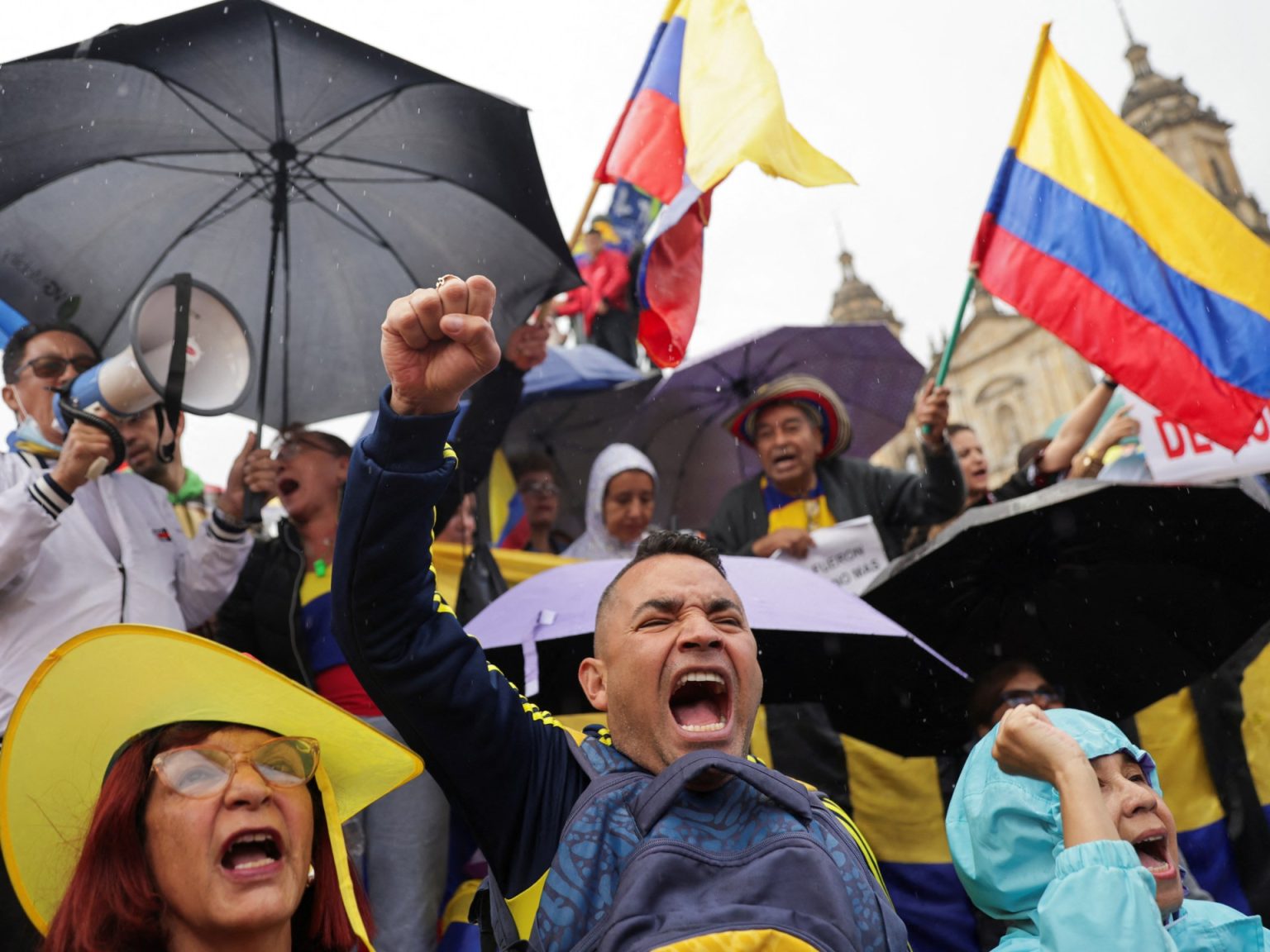Protesters in Colombia are calling President Gustavo Petro’s policies ‘dire’ as the government attempts to reform healthcare and other sectors. Tens of thousands of Colombians have taken to the streets in several cities in opposition to Petro’s social reform agenda. Large rallies were held in Bogota and other cities, with about 70,000 people demonstrating in the capital according to city government estimates. Protesters have been mobilizing against Petro’s proposed economic and social reforms, with momentum building as he considers rewriting the constitution to push through blocked reforms.
Since taking office in 2022, Petro has faced constant protests, but they have intensified as he pushes for significant reforms. A Senate committee recently rejected a health reform proposal that aimed to strip power from insurers and expand healthcare access. The opposition is upset with the government’s decision to take control of insurers that were deemed to have failed patients. A new version of the health reform is expected to be proposed in the upcoming legislative session, along with debates on pension and labor reforms. Marches both in support and against Petro’s reforms have taken place.
President Petro has characterized the protests as an attempt to topple his government, calling them a ‘soft coup’ to hinder reforms. He highlighted that the protests were significant in some cities like Medellin, Bogota, and Bucaramanga but weaker in others. Petro’s government has faced challenges since losing majorities in the legislature shortly after taking office, with his approval rating declining. A majority of Colombians believe the country’s situation is deteriorating, according to polling data. Petro’s ambitious ‘total peace’ policy to end armed conflict has also faced setbacks, with controversial concessions to armed groups leading to violations.
Opposition to Petro’s government and policies has been fueled by concerns over the impacts of his social reforms, particularly in the healthcare sector. Critics argue that Petro’s reforms are putting patients at risk and worsening the already flawed healthcare system. Some protesters believe that Petro’s government is jeopardizing healthcare access and medicine availability, leading to a crisis for those without proper healthcare. The pushback against Petro’s reforms has been significant, with protests gathering steam and calls for his removal from office increasing.
Despite facing strong opposition, President Petro remains defiant in the face of protests and criticisms. He views the demonstrations as attempts to undermine the reforms he is trying to implement and has labeled them as a threat to his government. Petro has called for a massive pro-government march in response to the protests, aiming to show support for his administration and its policies. As the political landscape in Colombia becomes increasingly polarized, Petro continues to face challenges in pushing through his reform agenda while navigating a complex environment of protests, opposition, and dwindling approval ratings.
The ongoing protests and opposition to President Petro’s government underscore the deep divisions and tensions within Colombian society. As Petro strives to implement his reform agenda, he faces significant pushback and resistance from various sectors of society. The results of these protests and the broader political developments in Colombia will have implications for the future of the country’s governance, economic policies, and social welfare programs. The clash between Petro’s government and its opponents reflects the broader struggle for power and influence in Colombia, with the outcome yet to be determined.













